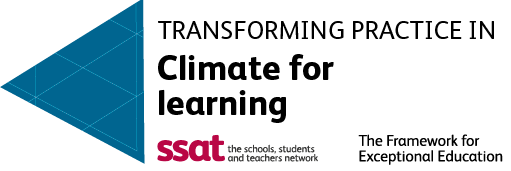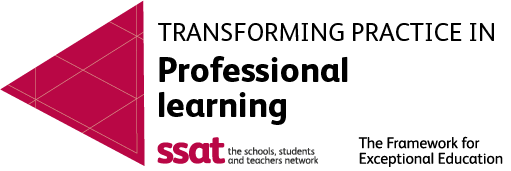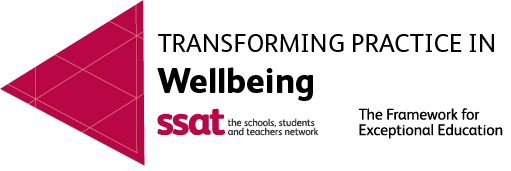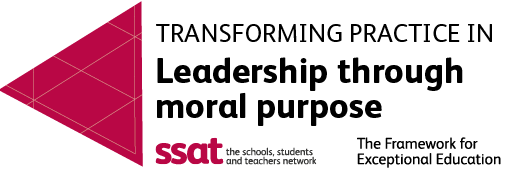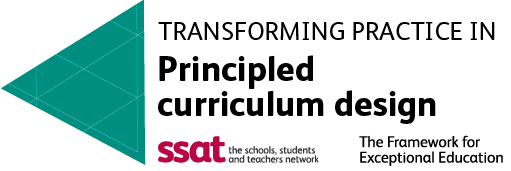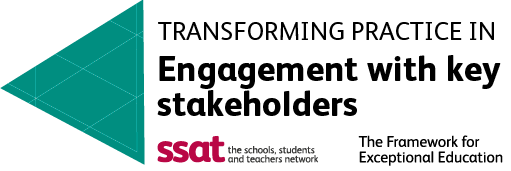Food Preparation & Nutrition
Useful Resources and Revision Support
GCSE Food Preparation and Nutrition:
- GCSE Food Preparation and Nutrition (8585) Specification
- Past Exam Resources
- Departmental Textbook
- AQA Subject Specific Vocabulary
- Food a Fact of Life Revision Website
- Food Science website
- Love Food Love Food Science website
- For recipes ideas bbcgoodfood.com
- WJEC Level 1-2 Award in Hospitality and Catering Specification
- Past Exam Resource
- Departmental Textbook
- For recipes ideas bbcgoodfood.com
WJEC Vocational Award – Hospitality and catering Textbook – ISBN Number 9781911208648
When studying Food and Nutrition students learn a wide range of practical skills to help cement their knowledge and understanding enabling them to produce high quality outcomes from a range of ingredients.
Students have a double lesson of Food per week where they are taught in mixed ability groups through practical activities a range of essential life skills. As students’ progress through the key stages they are encouraged to learn by experimental/scientific and investigative approaches, covering a great deal of practical work as well as theoretical topics. Students will make a wide range of interesting and tasty dishes throughout all key stages with an emphasis on nutrition, food science and food provenance.
Enrichment
Throughout the year we have many opportunities for students to get involved in the following extra-curricular clubs. These change every year and may include:
- Halloween cookery club – Spooky graveyard cakes, terrifying pizza dough bones and more!
- Christmas cake club – Festive bakes include Christmas cakes, biscuits and more.
- Easter cookery club – Easter themed biscuits or cakes.
- Master chef club – Where we make advanced patisserie and desserts, a club for the older students.
- Fun Kitchen – A science based cookery themed session full or explosive science and fun.
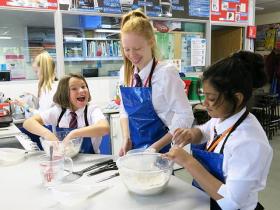
Assessment
WJEC Level 1/2 Award in Hospitality and Catering:
QAN code: 601/7703/2.
Unit 1 - The Hospitality and Catering Industry - External Assessment – A 90 Minute exam sat in year 10 – Worth 40% of the course.
Unit 2 - Hospitality and Catering in Action – Internal Assessment task - Lasting 72 guided learning hours in year 11. – Worth 60% of the course.
GCSE Food Preparation and Nutrition:
Specification code: 8585, QAN code: 601/8421/8
This qualification is linear. Linear means that students will sit their exam and submit all their non-exam assessment at the end of the course in year 11.
Unit 1: Food preparation and nutrition Exam - External Assessment – a 1 hour 45 minute exam sat in Year 11 – Worth 50% of the GCSE
Unit 2: Non-exam assessment (NEA) – Internal Assessment task
- Task 1: Written or electronic report (1,500–2,000 words) including photographic evidence of the practical investigation.
- Task 2: Written or electronic portfolio including photographic evidence. Photographic evidence of the three final dishes must be included.
GCSE Food and Preparation (8585) Specification >>
Curriculum Overview
As part of their work within the Food and Nutrition department at Bingley Grammar School, Key Stage 3 students will be taught how to cook and apply the principles of nutrition, food science, food safety and healthy eating. The aim is to instill a life-long love of cooking that will extend way beyond the classroom. Lessons are engaging and practically based.
As healthy individuals we teach students to:
- Understand and apply the principles of nutrition and health
- Understand how nutritional needs vary with age and health conditions
- Understand the source, seasonality and characteristics of a broad range of ingredients
- Demonstrate a repertoire of predominantly savoury dishes as part of a healthy and varied affordable diet
As members of the local and school community we teach students to:
- Understand the economic, environmental, ethical, religious and socio-cultural influences on food availability, production processes, and diet and health choices
- Understand how food contributes to various religious and spiritual events and celebrations
- Explore a range of ingredients and processes from different culinary traditions
- Be able to feed themselves and others
In terms of academic achievement we:
- Ensure that students achieve their expectations in a creative and innovative way
- Demonstrate knowledge of functional chemical and nutritional properties, the sensory qualities and the microbiological considerations leading to the food preparation
- Critique, evaluate and test food and the food of others
- Apply the principles of nutrition and healthy eating to understand how it ultimately fuels better academic success across the curriculum
Year 7
During Year 7 there is a strong emphasis on developing a variety of basic practical skills and gaining an understanding of basic nutrition and personal hygiene.
All the work is based around the national guidelines for healthy eating and focuses on working hygienically and safely.
Year 7 students follow a carousel-based system which includes a rotation of food practical, food theory and photography. During food lessons students follow the Eatwell Guide, with practical tasks that are selected to meet the national curriculum criteria.
Year 8
During Year 8, through more advanced practical skills and practical sessions, there is a focus on students understanding of basic scientific principles when preparing food. Year 8 extends practical skills developed in Year 7 by making more complex dishes. All students follow a carousel-based system with a double lesson of Food each week of the rotation. They are taught in mixed ability groups and undertake a range of practical activities offering them access to essential life skills.
Year 9
Year 9 acts as a bridge to GCSE where further techniques and processes are interwoven, using more complex ingredients to provide much more complex demanding food products.
This subject is taught as part of a carousel.
Year 10
At KS4 students can study GCSE Food nutrition and preparation. Our new GCSE is an exciting and creative course which focuses on practical cooking skills to ensure students develop a thorough understanding of nutrition, food provenance and the working characteristics of food materials. At its heart, this qualification focuses on nurturing students' practical cookery skills to give them a strong understanding of nutrition.
As students progress through Key Stage 4 they are encouraged to learn by experimental, scientific and investigative approaches, covering a great deal of practical work as well as theoretical topics. Students will make a wide range of interesting and tasty dishes throughout the course with an emphasis on high level skills and techniques covered in the specification.
Hospitality and Catering is taught through two units, students will gain an overview of the hospitality and catering industry and the type of job roles that are available. The course in Year 10 is designed with the aim of enabling students to gain a good foundation of knowledge, understanding and skills that are required by the hospitality and catering industry, which is a major employer of people in the UK and other countries.
Year 11
For both options in Year 11, Food and Nutrition and Hospitality, students will all be completing coursework requirements for the exam board which goes towards their final grade. All students will be working on tasks which include the following:
- Students' understanding of the working characteristics, functional and chemical properties of ingredients
- Students' knowledge, skills and understanding in relation to the planning, preparation, cooking, presentation of food and application of nutrition related to the chosen task.
Students will plan in detail, prepare, cook and present a final menu and dishes which meet the chosen task.



 Safeguarding
Information
Safeguarding
Information

